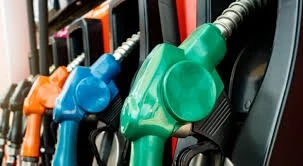Due to their connection to the federal Ministry of Oil and the executive authority, which in turn sets fuel prices based on quality and purity, Iraqi governorates have to deal with unified fuel prices at government and private filling stations. Regular fuel costs 450 dinars per liter, upgraded fuel costs 850 dinars per liter, and super fuel costs 1,000 dinars per liter. Distribution companies for oil products have proven that this gasoline product is imported in hard currency at a price of 1400 dinars per liter, despite the high price of the latter category, which has been reduced by government support to 1,000 dinars.
As the prices of regular gasoline reached 825 dinars per liter, improved 1025 per liter, and super 1175 per liter, which sparked popular discontent before it was political, due to the ruling parties in the region, the aforementioned prices were not applied in the Kurdistan Region for reasons related to the policies of the ruling parties there, the nature of dealing with oil companies, and the absence of support for the fuel produced. In addition, the price changes according to demand, times of occasions, and holidays
“The Iraqi government has been very negligent regarding oil derivatives, as Kurdistan is not treated like the rest of the provinces, which has caused fuel prices to rise in the region,” Ghaleb Mohammed, a former member of the parliamentary oil committee, explained to The government has been held accountable for not receiving the oil produced in the region by the ruling parties in the region, such as the Union and the Democratic Party. As a result, these parties are selling derivatives in order to reimburse Kurdish businesses for their debts. The federal government’s failure to negotiate with the region’s oil companies to obtain derivatives and distribute them to stations, as is the case in all provinces, raises questions. As a result, the region’s citizens suffer greatly from the rise in costs, particularly for fuel.
However, according to oil expert Bahjat Ahmed, “There are 4 refineries in the region that have an isomerization unit, from which the naphtha material that goes into the gasoline industry is converted, and it determines its quality; while the other refineries do not have an isomerization unit, so traders buy the naphtha material from the refineries and mix it with the improved materials that they import from Iran, and according to the amount of mixing, regular, improved, and super gasoline is produced.”
The Council of Ministers made the decision on April 23 to raise the price of car fuel by about 30% for improved gasoline and by about 25% for premium gasoline. They also decided to keep the price of regular gasoline the same and not raise it. The price of improved gasoline will go up to 850 dinars per liter instead of 650 dinars, and the price of premium gasoline will go up to 1,250 dinars instead of 1,000 dinars.
On the other hand, Erbil’s mayor, Nabaz Abdul Hamid, stated that the increased demand for gasoline is to blame for the recent increase in gasoline prices. Erbil is home to hundreds of thousands of vehicles, but every day, thousands more vehicles from Iraqi cities arrive in the province for a variety of reasons. One possible explanation for the rise in the cost of gasoline is this. Another reason is that the federal government stopped occasionally delivering large quantities of gasoline to the region’s cities. “Erbil, including the independent administration of Soran, needs between two and a half million and three million liters of gasoline daily, and the distributed quantity is low compared to the quantity of demand,” he said.





